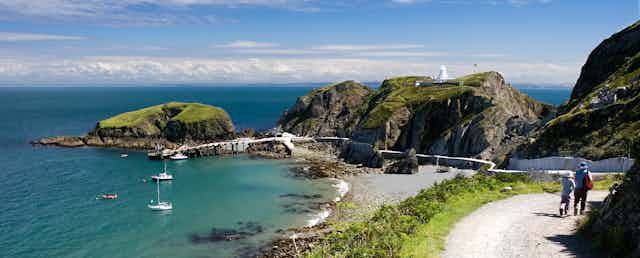Worldwide, the use of Marine Protected Areas is recognised as an important strategy to safeguard marine biodiversity from the impact of over-fishing, pollution, and other environmental damage.
In England, Part V of the Marine and Coastal Access Act 2009 enables the establishment of protected areas of national importance, known as Marine Conservation Zones. The designation of 27 new zones was announced last month after a long consultation process. The designated number is low compared to the expectations, but this is not the only problem.
Created by participation?
Marine Conservation Zones (MCZs) should not be seen in isolation but as part of a wider network of protected areas across the UK to fulfil the requirements of the European Marine Strategy Framework Directive. But MCZs are unique in that “socio-economic consequences” may be taken into account when deciding the boundaries and level of protection within these areas. This in practice meant embarking on an elaborate consultative, participatory, decision-making process over two years. This began in 2008, when England was divided into four regional projects which co-ordinated the involvement of various stakeholders such as conservation groups, fishers, energy companies, shipping and recreational sea users in the designation process.
The aim of this exercise was not to dilute the conservation objectives of the protected areas – MCZs were to be designated on the best available evidence following a precautionary approach –but to contribute to a shared sense of ownership of the decision making.
After considering time and planning, in December 2012 the regional groups recommended the designation of 127 MCZs, but only 31 were put forward by the government for public consultation. The government justified this drastic drop in numbers by citing “lack of evidence”, and stated that more areas would be designated at later stages after gathering more evidence.
MCZs and their discontents
The government’s proposal of such a small tranche of sites seemed in contradiction with the logic of using the best available evidence and with the precautionary approach. In more than 40,000 responses to the public consultation, many criticised the government’s decision to drastically reduce the number of potential MCZs on this basis.
While these criticisms came chiefly from environmental organisations such as Fish Fight, RSPB and the Marine Conservation Society, disappointment was not only felt among the “usual suspects”, but by those whose livelihoods would be affected by the MCZs; mostly local, small-scale fishermen.
Despite often being painted as the enemies of marine conservation, the fishermen I interviewed in the south east as part of my Ecologies and Identities project complained not about the number of sites, but about the selection process. Sold as participatory and inclusive, fishermen complained that the stakeholders’ discussions happened within pre-determined ecological parameters. They argued that their knowledge and views were not always included, and that the decision to put forward certain sites did not take due account of the costs of the loss of fishing grounds.
The site of Hythe Bay was a case in point, with local fishers arguing that the area’s positive ecological trends meant the Hythe Bay MCZ should be designated with an aim of allowing fishers to continue their activities rather than be pushed out of a job. Instead, Hythe Bay was one of the 31 put forward for public consultation, while others that had broad support from fishermen and conservationists alike, such as Dover to Folkestone and Inner Bank, were dropped.
Overcoming the critiques
Last month the Department for the Environment, Food, and Rural Affairs, announced the formal designation of only 27 sites. Fewer still than the 31 sites in the public consultation document, Hythe Bay was among the two sites whose designation has been deferred, and a further two were declared unsuitable. Even for those small-scale fishermen in the south east celebrating a victory of sorts, essentially the problem – the weak participatory techniques used in the process of designation – remains intact and unquestioned.
Despite the lengths gone to for the express purpose of ensuring that those with a stake in the zones were involved, the government ultimately ignored most of the proposed sites. It’s not clear this exercise was worthwhile as it failed to create a sense of shared ownership over the decision-making. The government in Scotland is progressing its own version of MCZs, using a different political process – it will be interesting to see how these issues are dealt with at Holyrood.
But the problem is not just one of failed participatory ethics. The UK must meet its obligations to fulfil European Environmental Directives, to which a coherent network of marine protected areas is central. This was a point stressed repeatedly by the scientists advising on the MCZ process. So it is essential that the UK government remains committed to the full extent of the regional groups’ recommendations for 127 protected areas, and ensures that these MCZs are created in the near future.

